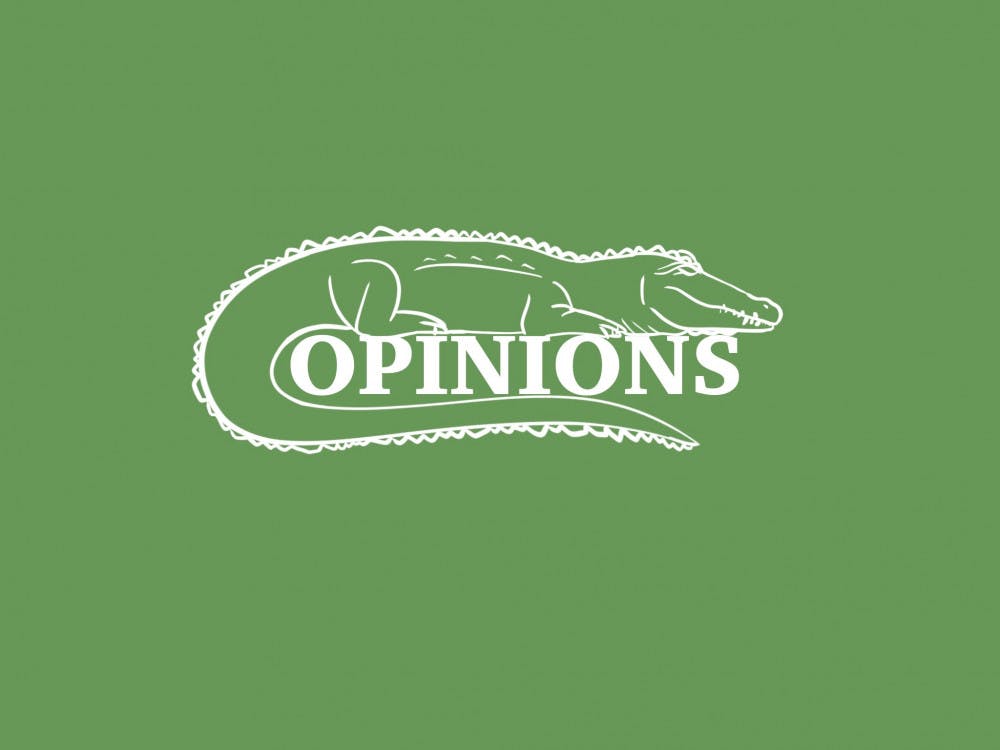UF President Kent Fuchs announced the HyFlex spring reopening plan last fall before the worst of the pandemic hit this past winter. Immediately, employees, students and community members began voicing their concerns about this top-down decision. They held protests outside of the President’s mansion, created a petition with over 3,500 signatures, wrote opinion columns in local newspapers and even attended a Board of Trustees meeting. Despite these efforts, the administration plowed forward with its plan.
With the semester in full swing, the community’s greatest fears have come to fruition. Immunocompromised employees were denied accommodations and forced onto campus, students are partying irresponsibly and COVID protocols are weak, with students only being tested every two weeks. Inexplicably, students are cleared to attend in-person classes for merely scheduling a test and self-reporting as asymptomatic—even if test results are pending, they’ll obtain “cleared” status.
In January, a reporter from the CBS local station asked the university administration why—with so much blowback—they moved forward with the spring plan. A UF spokesperson responded that they, “heard from literally thousands of students” who wanted to have the in-person experience and that the university’s “first priority is the students.”
This response is indicative of the administration’s general strategy, addressing only the concerns and safety of in-person classes and on-campus students. They neglect the most compelling objection: how the unilateral decision for the spring semester is affecting the community off-campus. UF deferred to the students’ supposed desires, who stand to gain the most, while those suffering the harshest consequences—local business owners, bus drivers, essential employees, the elderly, and those with disabilities and all who call Alachua County home—were not considered and have no voice in these decisions.
The Reality
Even before UF’s announcement, it was widely accepted by health experts that inviting students back to a large campus would put vulnerable community members at high risk. Last summer, a study released by the CDC found 59% of community transmissions are from asymptomatic and pre-symptomatic transmission. In a separate study, it was discovered that younger adults are more likely to be asymptomatic. Similarly, the World Health Organization stated that people between the ages of 20-40 who were unaware that they contracted the virus due to mild or no symptoms, were increasing the spread to those with higher risk.
Additionally, the CDC published a study this January that found COVID cases increased by 56% in counties where in-person classes were being held at large colleges and universities.
The first detection of the coronavirus in the state was found on a doorknob at UF, weeks before the first case was officially announced. As of March 2nd, UF tops the New York Times dashboard for cases on college and university campuses with a whopping 8,894 cases- in a city with a population of only 132,000. This January, Alachua County recorded its worst month ever since the beginning of the pandemics, reaching an all-time high of 364 new cases in one day on January 2. This was just nine days before the University of Florida commenced roughly the same number of in-person classes as last spring, before the pandemic began.
While numbers are recently trending down, Alachua County sadly surpassed 200 total deaths last week and area hospitals remain at a precarious 93% ICU capacity. Despite optimism as vaccinations continue, there are widespread concerns of confirmed county cases with new variants that are more deadly and contagious.
Beyond the risk this semester poses to the vulnerable, the pandemic closed beloved Gainesville restaurants and businesses, significantly raised the level of food insecurity in the county, and caused 10.8% of the county labor force to file for unemployment. Healthcare workers at UF-related hospitals received favorable treatment for vaccination, causing a disparity for non-UF healthcare workers also serving on the frontlines. The UF administration is making decisions that impact these dire and worsening circumstances and they must change course.
The Solution
The solution to this dilemma is simple: the administration must be held accountable by and work with, not against, Alachua County residents towards a pandemic response that intersects both campus and community needs. A crisis of this magnitude has exposed how UF’s administration can make powerful decisions that impact the community. While not chosen by the people to make decisions on their behalf, the administration is in a position to create policies for which the rest of the county must endure the consequences.
The following are immediate steps the administration should take to begin working with the community:
Honor all ADA accommodation requests, as the denials endanger immunocompromised employees and their loved ones.
Use the university’s position as a flagship institution to advocate for the prioritization of all employees in the next round of state-wide vaccinations.
Improve transparency of the COVID-19 dashboard by including aggregate county and state data, tests by division and separating employee testing data from student data.
Require more frequent testing and expand testing capabilities for students living on campus.
Require students test negative to be cleared for on-campus activities including attending class, extracurricular activities and sports.
Address a plan to mitigate further issues and demands of employees in a town-hall that includes public officials and is open to county residents.
Convene a Community Liaison Committee composed of community members not employed by the university, employees heavily involved in the community, and elected public officials from Alachua County, to work with the university administration on community-related issues, beginning with the pandemic response.
To the administration at the University of Florida: Look beyond your campus and remember that while you serve students, you are a neighbor to many who call this place home. May this pandemic mark the beginning of a renewed and compassionate partnership.
To all of us who call Alachua County home year-round: Let us confront this moment with courage and protect our vulnerable neighbors. Fighting for a safer campus means a safer Alachua County. We must accept nothing less than bold, ethical leadership in the midst of this crisis.
Danielle Hawk is a Gainesville resident and activist who holds a master’s degree in Intercultural Studies. She is the founder of GNV Unite, a group of community members fighting alongside University of Florida employees and students for a safer COVID-19 response.






